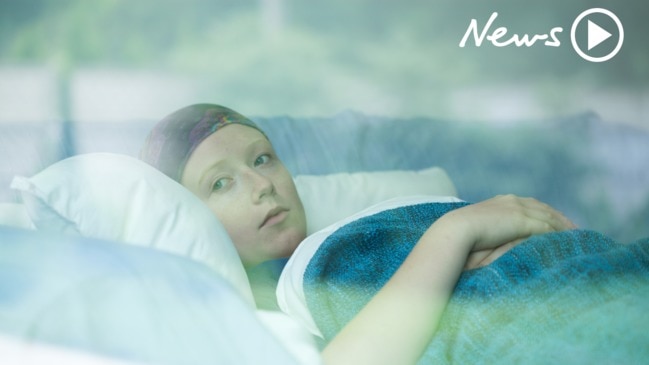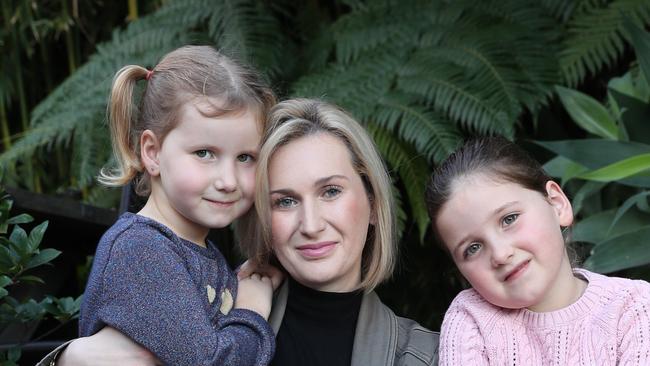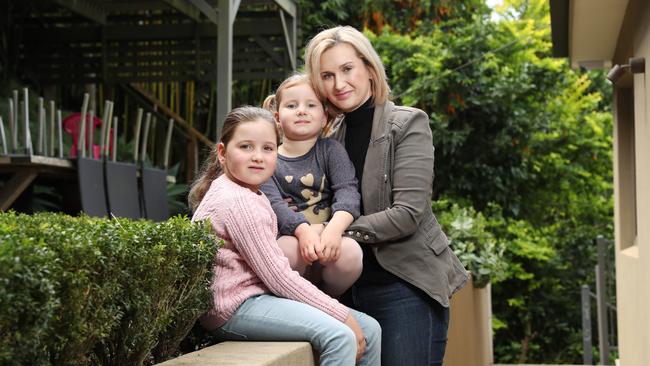COVID-19 surgery delays have made the wait for bowel cancer checks even longer
The life-threatening six-month wait for a colonoscopy to diagnose bowel cancer is now even longer thanks to COVID-19 and lives could be at risk.

Coronavirus
Don't miss out on the headlines from Coronavirus. Followed categories will be added to My News.
The life-threatening six-month wait for a colonoscopy to diagnose bowel cancer has got even longer thanks to COVID-19 and lives could now be at risk.
Before the pandemic, Australians with a positive bowel screen test were waiting six months or longer for a colonoscopy to diagnose cancer in breach of official guidelines but the COVID-19 surgery ban has intensified the problem.
Official guidelines require a person who returns a positive bowel cancer screen test to have a colonoscopy within 30-120 days but even before COVID-19 Australians were waiting up to 184 days for the procedure.
While there is no official data for the coronavirus period, a leading gastroenterologist said the number of colonoscopies he performs had plummeted by 90 per cent.
Patients who have a late stage of the disease and go undiagnosed can see their five year survival chances plummet from 71 per cent to just 13 per cent.
“Patients can go from the curable to the incurable phase,” colorectal surgeon and Bowel Cancer Australia Director, Associate Professor Graham Newstead told News Corp.

The COVID-19 surgery ban has pushed out these wait times even further and in addition doctors are worried many patients with bowel problems are going undiagnosed because visits to GP clinics plummeted during COVID-19.
There is further pressure on the system because from January this year free bowel screening tests for the over fifties now take place every two years instead of every five years and this means more people require a colonoscopy.
Before COVID-19 over 325 new bowel cancer cases were being diagnosed weekly.
Professor Graham Newstead said he had gone from doing 30 colonoscopies a week before COVID-19 to just two or three per week now.
Now surgery bans are being lifted it is imperative people with bowel cancer symptoms or a positive test result contact their GP for further investigation, he said.
“Improvements we were seeing in public hospital wait-times that had taken years, will have disappeared in weeks,” said Dr Newstead.
“Bowel cancer care is not elective and timely diagnosis is paramount. We know when bowel cancer is detected in the earliest stages, almost 99 per cent of cases can be successfully treated,” said Dr Newstead.
All Australians aged 50-74 are eligible for a free bowel cancer screening test every two years but just four in ten people complete the test.
Bowel Cancer Australia CEO Julien Wiggins said with Australians staying at home because of lockdown there had never been a better time to do the bowel cancer screening test.
People who lost the kits they were sent in the mail can contact Bowel Cancer Australia to get a new kit sent to them.
Those aged under 50 can purchase a kit from their local pharmacy for around $40, he said.

Mother of two Gemma Farquhar was diagnosed with Stage 3 bowel cancer during the COVID-19 lockdown and is urging those who think they have a problem to see their doctor.
The 35-year-old suffered a series of unusual stomach upsets but because she was so young her doctor dismissed as a stomach bug.
She insisted on seeing a gastroenterologist and experienced excruciating pain in late April and a CT scan found a bowel obstruction.
She was rushed into surgery and was found to have Stage 3 cancer which had spread to eight lymph nodes.
“It was completely out of the blue, a huge shock, there was no family history,” she said.
One of the bonuses of seeking treatment during COVID-19 was she was able to immediately get in to see a top gastroenterologist, she said.
Ms Farquhar urged people who were worried to press their doctor to thoroughly check out their bowel problems and said she had since discovered a lot of young people who had been diagnosed with the condition.
